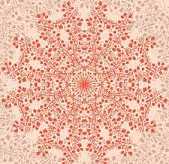果报:出世间 The Result Is To Be Beyond The World
发布时间:2023-01-17 12:54:48作者:楞严经入门网1-3-5. THE RESULT IS TO BE BEYOND THE WORLD果报:出世间
Let me emphasize with sincerity and insight that the Buddha teaches that whoever sees the Dhamma, sees Me. It means to see oneself, to see one's own mind, the Dhamma is oneself ! Seeing oneself acting, speaking and thinking is called seeing me. Seeing the mind itself goes even deeper, understand it like that. If you understand differently from this, it is not right view in the Buddhist's fashion. We're looking at the mind in order to see that sometimes our minds get caught up in thought. When being caught up in thought, it proliferates continuously.
What the Buddha teaches is that when seeing thought or when thinking, to abandon the thoughts and establish awareness to watch it, this is called VIJJA or wisdom.
我要再以真实及慧见强调一次——佛陀教导我们:「见『法』者即是『见我』。(注)」意思就是要「看见自己,看见自己的心。」所谓『法』就是自己(而不是自己以外的外在之物)!看见自己的动作、言语及起心动念(即身、口、意的行为动作)就叫做『见我』。所以,要看见心自己(Seeing the mind itself)并探究其深层的实相,这句话必须这样理解才行。如果你的理解有所不同,那就不是佛教的正见之流。我们之所以要看见自心是为了要看到(明了)我们的心有时被念头抓住(即心陷入念头之中无法自拔)。一旦卷入念头之中,就会不停地增生扩散。佛陀教导的是:当看见念头或当思惟的时候,放下念头并「保持觉性看着它」,这就叫做VIJJA(明)或智慧。

(注:隆波田对「见『法』者即是见『我』」有其个人独特的见解,一般的解释是说:见到法的人才是真正见到如来的人,也就是从「不可以身相见如来」的角度解释。但隆波田认为,我们一般常说要见法、见法,修行的第一步就是要能够见『法』,但是佛陀说「见『法』者即是见『我』」,这句话就是告诉我们——「所谓见『法』不是看见佛、光明…等外在的东西,而是要看见『我』、看见『自己』,而所谓的见『我』,也不是看见这个表相的色身,而是要看见自己的动作、言语及起心动念。)
As for the word AVIJJA, it translates as ignorance, but ignorance here, doesn't mean not knowing how to eat or bathe, it's not that kind of not knowing, that is another matter, not this matter. This word AVIJJA refers to not recognizing the origin of suffering. The Buddha teaches like this : AVIJJA is the condition for formations to arise, formations are the conditions for conciousness, conciousness conditions mentality/materiality, mentality/materiality condition the 6 senses, the 6 senses condition contact, contact conditions feeling, feeling conditions craving, conditions clinging, conditions being, conditions birth, conditions old age and death, conditions suffering. It rotates to be a circle. This is dependent origination or PATICCASAMOPPADA.
至于Avijja,中文翻译为无明或不知道,但这里讲的无明或不知道并不是说不知道如何吃东西或洗澡,不是那种不知道,那种指的是另一回事而不是此处讲的这一回事。此处所谓的Avijja是指不知道苦的根源。佛陀教导说:Avijja是行生起的因缘,行是识的因缘,识缘名(mentality)色(materiality),名色缘六入,六入缘触,触缘受,受缘爱、爱缘取、取缘有、有缘生、生缘老死苦,然后循环流转不停。这就是生死苦恼的相互依缘,或叫做Paticcasamuppada(即生死苦恼的缘起法则)。
Now, we'll look at it from another side : VIJJA translates as knowing. One might raise the question : knowing what ? Well, knowing thought ! When a thought comes up, whack, the thought is seen or trapped! Just like a cat and a mouse. The heart of it is, when we see our own thoughts, they will come to a halt and don't proliferate further, this is called VIJJA. But when thought is cooking up this and that, it is because we are caught up in thought, it is thinking with AVIJJA. But the other way is the method to extinguish suffering. The Buddha teaches us to know the method to extinguish suffering and the origin of suffering. Destroy the source of suffering. Someone who can't destroy it, is like someone afraid of death. But if someone can put out suffering, he or she is called by the Buddha someone who is beyond the world. Beyond the world here, doesn't mean up in the sky, in heaven or something like that but it means to be above roods, beyond suffering. Suffering cannot bother us, we work without having suffering.We are above moods but we can listen to anybody talking, whether what they say is right or wrong. We can listen and the work we do, we do it according to duty ; this is called someone beyond the world.
现在让我们从另一个角度来看:VIJJA中译为知道。有人可能会生起疑问:「要知道什么呢?」嗯!要知道念头!当念头一来,啪的一声,就要能见到或捉住念头!就像猫捉老鼠那样。这么做的核心意义在于——当我们看见自己的念头,它们就会停止而不会再增生扩散,而这样就叫做『明或知道(VIJJA)』。但是要知道,念头的此起彼落、此仆彼起是因为我们被念头抓住而迷失在其中,这就是由于「无明」而有妄想、妄念(而不是「明」的正念、觉念)。而另外那个方法(即明或看见念头)则是灭苦之道。佛陀教导我们要知道灭除「苦恼」及「苦恼根源」的方法,也就是要断除苦的原因。不能断除苦因的人就跟怕死的凡夫没两样,反之,如果有人能够灭苦,佛陀说这样的人就可称之为超越世间的人(即出世间圣者)。这里所谓的「超越世间」不是指升到天空、天堂或类似那样的地方,而是指超越情绪感受、超越一切诸苦。也就是说,这时苦就无法扰乱我们,我们可以不带苦恼而自在工作。
要知道,出世间或超越情绪感受并不是指从此就远离世间不理人了,我们虽然不再受他人言语影响,超越了情绪感受,但还是可以听别人说话,不管他们说的是对的还是错的。我们还是可以听人讲话,也还是可以上班工作,而且我们听的时候能超越情绪感受,工作的时候能遵守自己的职责尽心尽力,而这就叫做超越世间的人(出世间圣者)。
Our Buddha is an Arahant, Enlightened, capable of extinguishing defilements and suffering but He would still walk and eat just like us. But we ourselves misunderstand and think that someone without defilements is not like this or we think that money and cars are defilements.This is wrong understanding. We'll have to accept that a dilligent person who knows how to save and accumulate, can have money or a car but it is not as if a lazy person who doesn't have anything is without defilements. It's not like that. A lazy person is not a good person, neither is a person who has little but spends a lot. The Buddha teaches all people to be dilligent, He talks about KHANTI - patience, and SORACCA - modesty. He teaches to find and look after money, but not having it to go and play. He teaches from all angles, also to avoid evil paths, as we probably know. The evil paths are the entrance to ruin and destruction.
佛陀是一位阿罗汉(Arahant),是觉悟的人,能断除烦恼和苦,是出世间的圣者,但他还是要走路吃饭,跟我们一模一样(出世间并非弃世间),是我们自己对出世间圣者有所误解因此才会认为一个没有烦恼的人跟我们不一样,或认为(没有烦恼的人就不要金钱、车子所以)金钱和车子是烦恼,这是一种错误见解。我们必须了解:一个勤奋又知道节俭与累积财富的人,他自然能够拥有金钱或车子,但不表示他就是有烦恼的人,更不能说:一个什么都没有的懒人就是没有烦恼的人,不是那样的(意即有没有烦恼跟你有没有世间财物是两回事)。懒人连个世间的好人都不是,赚得少却花得多的人也不是好人(怎么能是出世间圣者呢)。佛陀教导所有人要努力工作,然后要贫能安忍、富能谦卑。他也不只教导我们去赚钱并且还要我们善加管理(量入为出、四分运用),而不是有了钱就去玩乐。如我们所知道的,佛陀从各种面向教导我们(即八正道),但也教我们要避免邪道恶法,因为邪道与恶法是堕落和毁灭的肇端。



